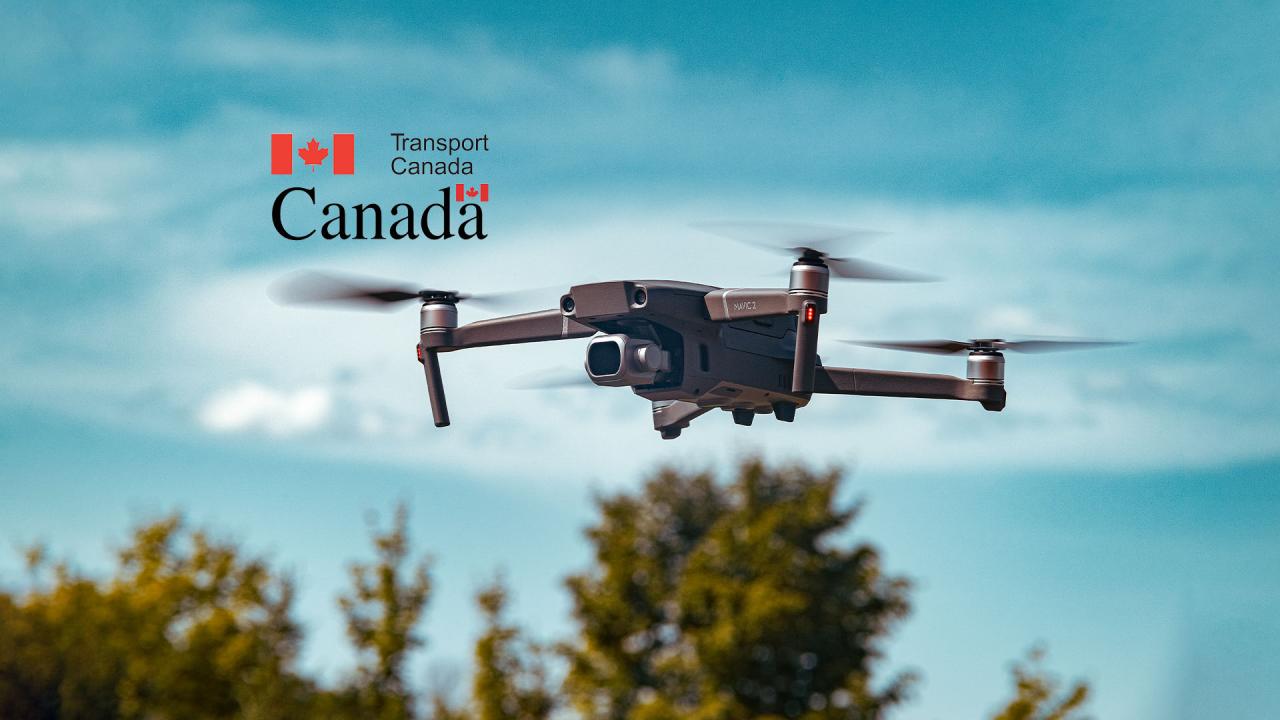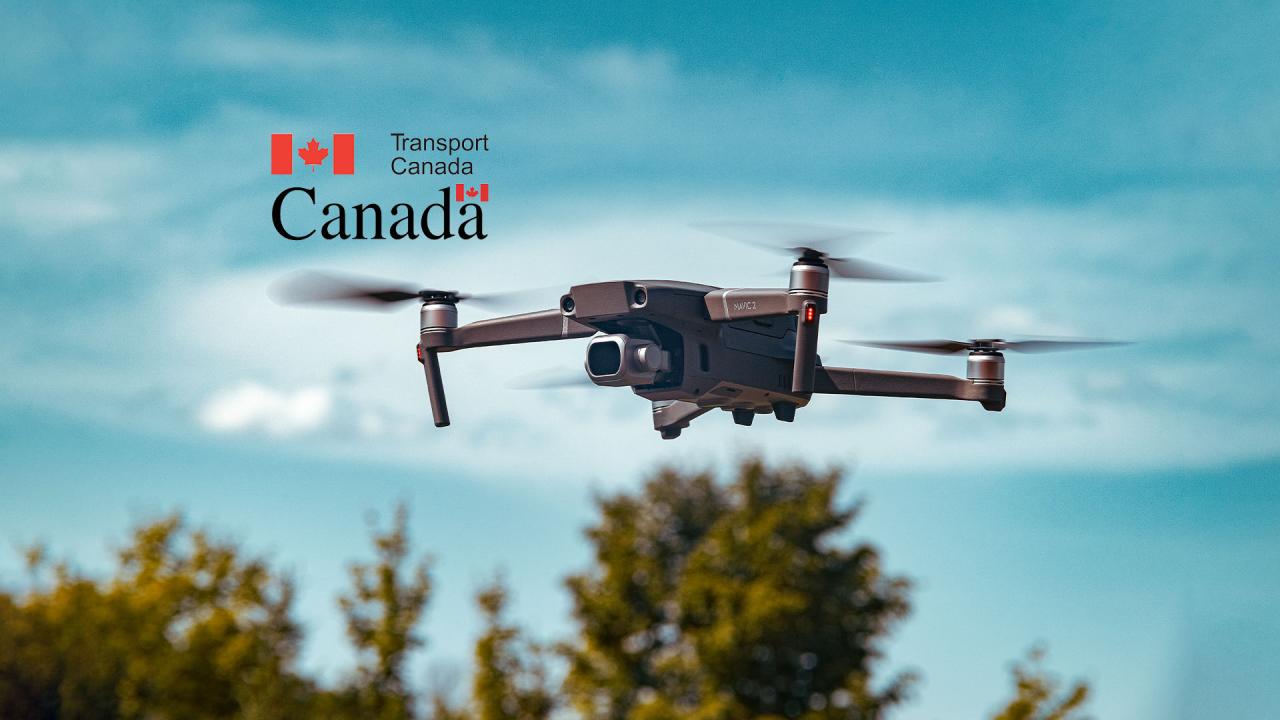Transport Canada drone licenses are essential for operating drones legally in Canada. This guide delves into the various license classes, outlining the specific requirements, operational limitations, and application processes. We’ll explore the intricacies of Canadian drone regulations, covering crucial aspects like flight restrictions, registration, and safety protocols. Understanding these regulations is paramount for responsible and compliant drone operation.
From navigating the application process and understanding the associated fees to mastering safe flight practices and adhering to airspace restrictions, this guide aims to equip you with the necessary knowledge to become a responsible and legal drone pilot in Canada. We’ll also cover the importance of license renewal and the consequences of non-compliance.
Transport Canada Drone Licenses: A Comprehensive Guide

Navigating the world of drone operation in Canada requires understanding Transport Canada’s licensing framework. This guide provides a detailed overview of the different license classes, the application process, relevant regulations, and essential resources for drone pilots.
Types of Transport Canada Drone Licenses

Transport Canada offers various drone pilot certificates, categorized by operational complexity and risk. These licenses dictate the types of drones you can operate, where you can fly them, and the required safety protocols. Understanding these differences is crucial for legal and safe drone operation.
| License Class | Knowledge Test Required | Flight Restrictions | Drone Weight Limit |
|---|---|---|---|
| Basic Operation Certificate | Yes, Basic Operation Knowledge Test | Visual Line of Sight (VLOS), under 25kg, no operations near airports or populated areas without specific authorization. | Under 25kg |
| Advanced Operation Certificate | Yes, Advanced Operation Knowledge Test | Beyond Visual Line of Sight (BVLOS) operations may be permitted with additional authorizations, operations near airports or populated areas with specific authorization. Higher weight limits may apply depending on the specific authorization. | Varies depending on authorization |
| Pilot Certificate with Remote Pilot Rating | Yes, Comprehensive Knowledge Test | Broader operational flexibility with appropriate authorizations, potentially including commercial operations. | Varies depending on authorization |
Application Process for a Transport Canada Drone License
The application process involves several steps, from registering your drone to completing the required knowledge test. Accurate completion of each stage is crucial for a successful application.
- Create an account on the Transport Canada online portal.
- Complete the application form, providing accurate personal and drone information.
- Submit the required documentation, including proof of identity and address.
- Schedule and complete the relevant knowledge test at an approved testing center.
- Pay the applicable fees.
- Receive your license once your application is approved.
Necessary documentation typically includes government-issued photo identification, proof of address, and potentially additional documents depending on the license class applied for. Fees vary depending on the license type.
Drone Regulations and Operational Rules in Canada
Safe and legal drone operation in Canada necessitates adherence to Transport Canada’s regulations. These rules are designed to protect the public and ensure safe airspace management.
- Always maintain visual line of sight with your drone.
- Never fly your drone near airports or heliports without prior authorization.
- Avoid flying over people or populated areas.
- Register your drone and display its registration number visibly.
- Respect privacy laws and avoid filming people without their consent.
- Fly responsibly and avoid reckless behavior.
Failure to comply with these regulations can result in fines and other penalties.
Renewing and Maintaining a Transport Canada Drone License
Drone licenses have expiry dates and must be renewed to remain valid. Staying informed about renewal deadlines is crucial for continuous legal operation.
Obtaining a Transport Canada drone license is crucial for safe and legal operation. Recent incidents, such as the unfortunate event highlighted in this news report about a nj drone shot down , underscore the importance of responsible drone piloting. Understanding regulations, like those covered by a Transport Canada license, helps prevent such occurrences and ensures the continued safe integration of drones into Canadian airspace.
The renewal process is similar to the initial application, involving updating personal information and potentially retaking the knowledge test depending on the license type and any changes in regulations. Operating a drone without a valid license carries significant legal and financial consequences. Accessing and updating your license information can typically be done through the Transport Canada online portal.
Resources for Drone Pilots in Canada
Several resources are available to help drone pilots stay informed about regulations and best practices. These resources provide valuable support for safe and legal drone operation.
| Resource | Website/Contact | Description |
|---|---|---|
| Transport Canada | www.tc.gc.ca | Official source for drone regulations and licensing information. |
| Drone Safety Canada | [Insert relevant website or contact information if available] | Provides safety tips and best practices for drone operation. |
Illustrative Scenarios of Drone Operations and Applicable Regulations

Understanding how regulations apply in different situations is crucial for responsible drone operation. Let’s explore a few scenarios.
- Scenario 1: A drone is flown within 5km of an airport without authorization. This violates regulations and could lead to serious consequences, including fines and legal action. Prior authorization is mandatory for operations near airports.
- Scenario 2: A drone accident occurs resulting in property damage. The pilot is legally obligated to report the incident to Transport Canada, providing details of the accident and any damages incurred.
- Scenario 3: A drone is flown in restricted airspace (e.g., over a military base). This is a serious violation that could result in significant penalties, including substantial fines and potential legal charges.
Successfully navigating the world of Canadian drone operation requires a thorough understanding of Transport Canada’s regulations and licensing procedures. This guide has provided a comprehensive overview of the various license classes, application processes, operational rules, and essential resources. By adhering to these guidelines, drone pilots can ensure safe and legal operation, contributing to a responsible and thriving drone community in Canada.
Remember to always prioritize safety and responsible flight practices.
Questions Often Asked: Transport Canada Drone License
What happens if my drone license expires?
Operating a drone without a valid license results in penalties, including fines.
Obtaining a Transport Canada drone license is a crucial step for anyone operating drones commercially. Understanding the regulations is paramount, and researching companies like archer aviation , which operates in the advanced air mobility sector, can provide valuable insight into industry best practices. This knowledge will help ensure your compliance with Transport Canada’s drone licensing requirements and contribute to safe and responsible drone operations.
Can I fly my drone at night?
Night flights are generally restricted and require additional authorizations. Check Transport Canada guidelines for specific rules.
Where can I find a list of restricted airspace?
Transport Canada’s website and navigation apps like Nav Canada provide detailed information on restricted airspace.
What type of insurance is required for drone operation?
Liability insurance is highly recommended to cover potential damages or injuries caused by your drone.
